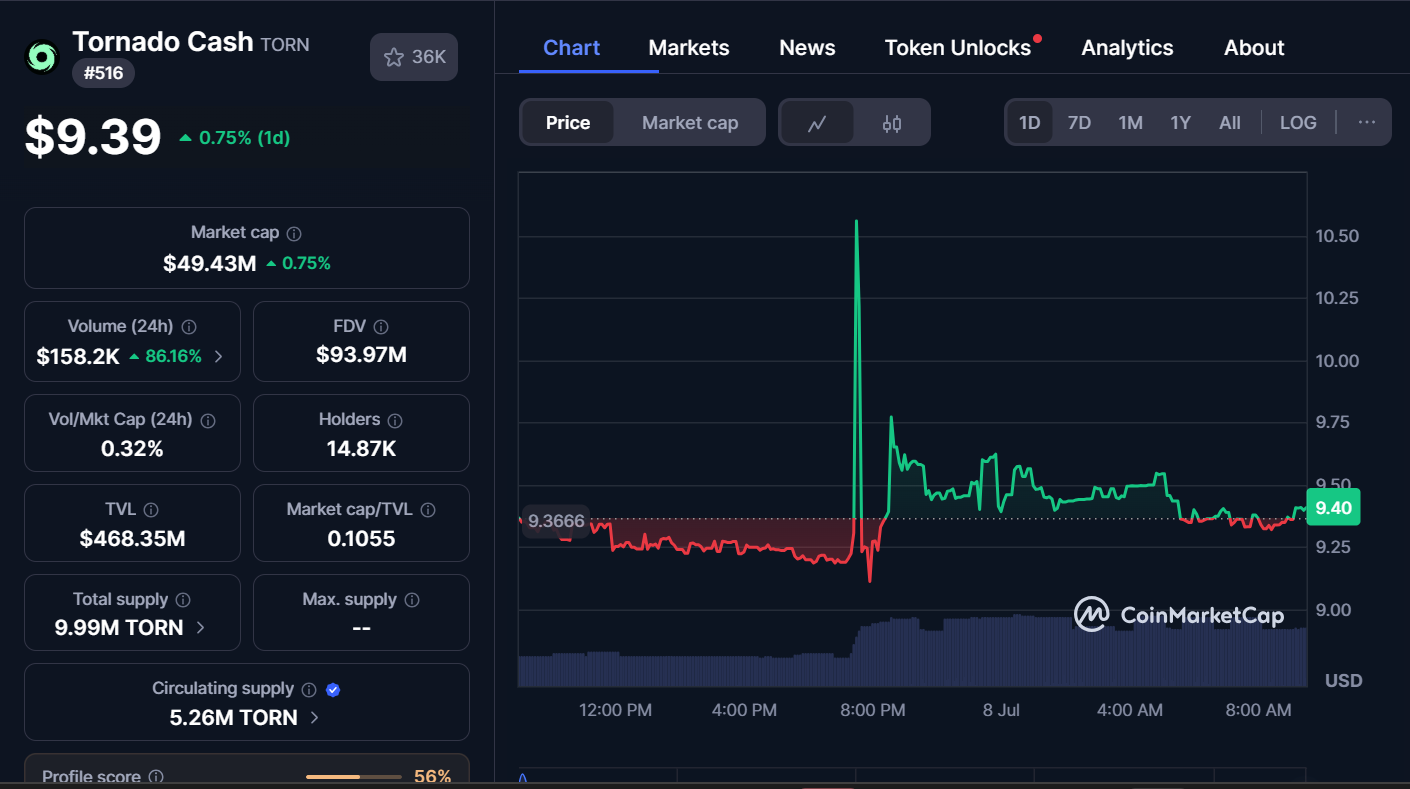Highlights:
- The U.S. Treasury and Coin Center have ended their legal battle after Tornado Cash was removed from the sanctions list.
- Coin Center argued that the sanctions targeted software and code rather than a person or organization.
- Roman Storm is still facing trial in New York for money laundering and conspiracy to violate U.S. sanctions.
The United States Treasury Department and Coin Center have agreed to end their legal battle over sanctions against the crypto mixer Tornado Cash. On Thursday, the Court of Appeals for the Eleventh Circuit granted their joint motion to dismiss the case.
Tornado Cash Sanctions Dispute Settled as U.S. Appeals Court Approves Dismissal
The U.S. Court of Appeals for the Eleventh Circuit has approved a joint motion by the Treasury Department and @coincenter to dismiss the case over sanctions against @TornadoCash, officially ending a… pic.twitter.com/MiqcLfzrn4
— MetaEra (@MetaEraHK) July 7, 2025
Both sides confirmed that the appeal no longer held legal relevance after the Office of Foreign Assets Control removed Tornado Cash from the sanctions list in March. The Treasury originally ostracized the platform in 2022. Coin Center responded by filing a lawsuit, stating that the Treasury had overstepped its authority. Coin Center appealed against the decision on the basis that the sanctions were against software and code, not an individual or entity. The group argued that there was an overreach by the government that was not permissible under the law.
Background of Tornado Cash Sanction and Legal Challenges
The government sanctioned Tornado Cash, a crypto transaction privacy program, because of its affiliation with the Lazarus Group. The group is said to have laundered billions of dollars of stolen crypto via Tornado Cash. Consequently, OFAC ostracized a number of wallet addresses that belonged to the platform. Privacy advocates and developers criticized the move and argued that it was unfair to persecute the open-source tool and its developers.
One argument presented in court was whether smart contracts can be owned as property. According to a judge in the Fifth Circuit, Tornado Cash was not property, and its smart contracts could not be controlled, thus unable to be treated as one.
Coin Center and other parties used this decision to support their claim that the sanctions lacked a legal basis. Six Tornado Cash users, with support from Coinbase, also filed a separate lawsuit. In January, a Texas court ruled that OFAC had acted improperly, which led to the agency removing Tornado Cash from the sanctions list.
The native token of Tornado Cash, TORN, has suffered some price volatility due to the court battle. Following the latest court ruling, TORN increased by more than 14% but later stabilized at approximately $9.47. The coin is currently trading around $9.39, with a 0.75% increase in the past day. The trading volume is 86.16% to $158,281.

Roman Storm Faces Trial Despite Dismissed Appeal
Although the appeal has ended, Tornado Cash’s developers are facing court battles. Roman Storm is facing charges, and his trial is expected to begin next week. Prosecutors charged him with money laundering and conspiracy to violate sanctions. They dropped an earlier charge related to operating an unlicensed money transmission business.
Alexey Pertsev, one of the developers of the cryptocurrency mixer Tornado Cash, was sentenced to 64 months in prison by a Dutch court. Meanwhile, Roman Semenov, named in the same case as Storm, remains at large. Although the appeal has ended, it does not affect the outcome of Storm’s ongoing trial.
Best Crypto Exchange
- Over 90 top cryptos to trade
- Regulated by top-tier entities
- User-friendly trading app
- 30+ million users
eToro is a multi-asset investment platform. The value of your investments may go up or down. Your capital is at risk. Don’t invest unless you’re prepared to lose all the money you invest. This is a high-risk investment, and you should not expect to be protected if something goes wrong.






